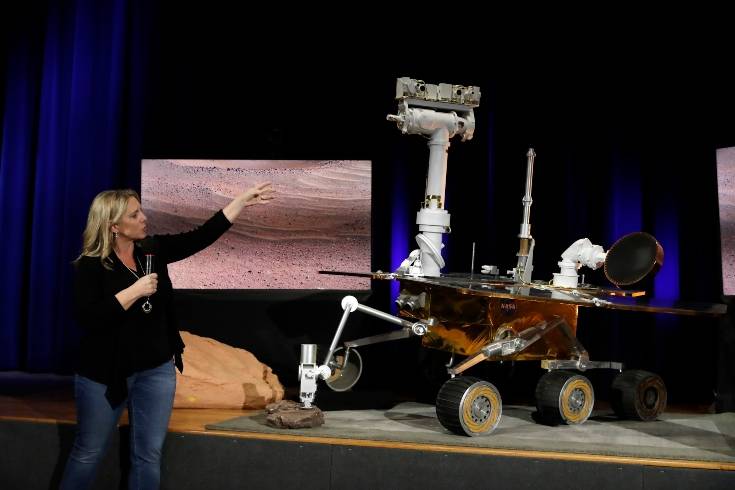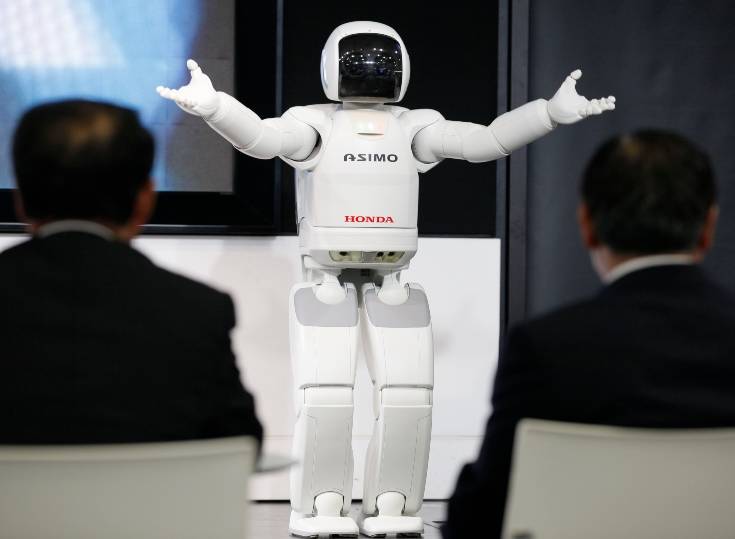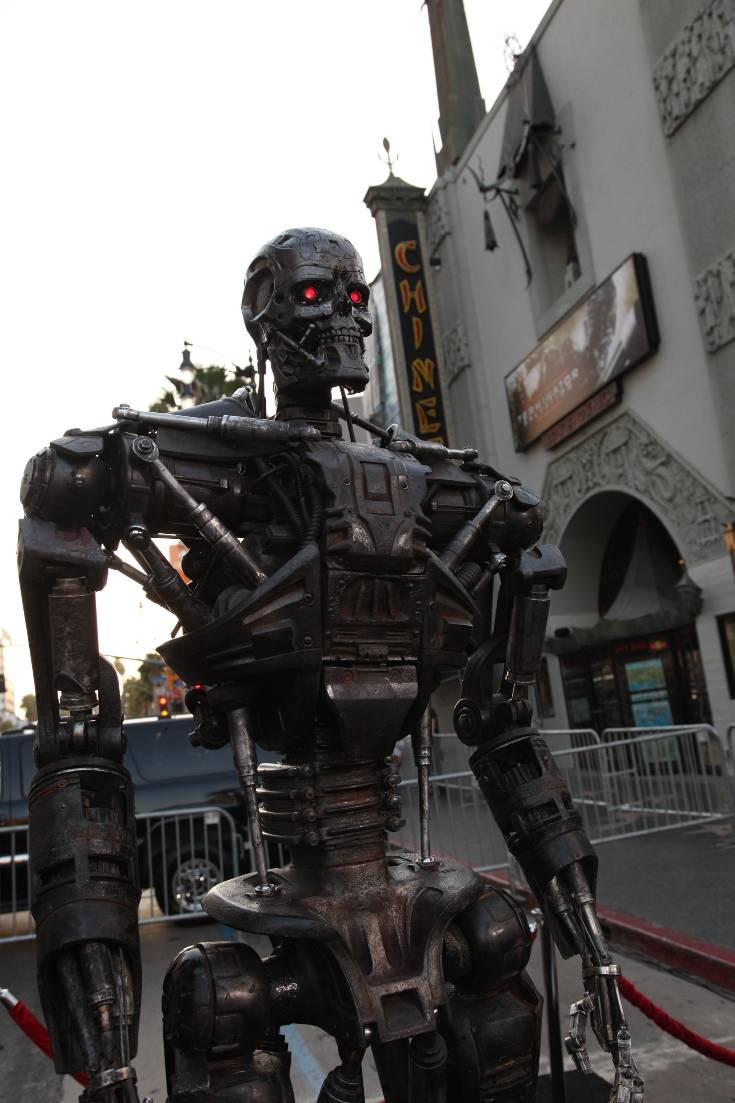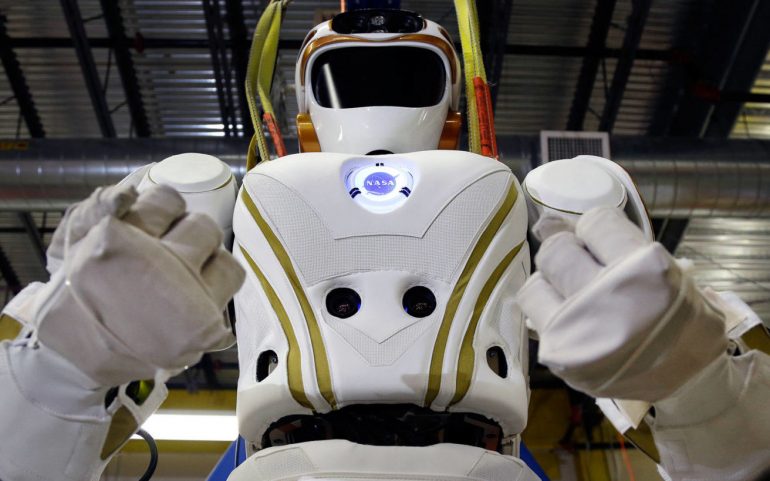The word "roboticsIs heard more and more as technology is constantly making leaps and bounds. However, many people may have a misconception about what a robot is or may not even realize that they are in their daily lives.
Ioannis Kalomiros, professor at the International University of Greece in the Department of Computer Engineering, Computers and Telecommunications, director of the MSc in Robotics program in Serres, spoke to Newsbeast and explains what we did not know.
"Robotics is a complex branch of Engineering that designs and builds systems that are programmed to interact with the environment to produce useful work, which is predetermined by the designer. For this purpose, Robotics combines knowledge from various sciences, mainly Electronics, Computer Science and Engineering ", Mr. Kalomiros first explains to us in order to understand the basic concepts of the industry.
As for the connection between robotics and artificial intelligence, the professor states: "The connection of robots with artificial intelligence is a big issue that requires some specialization to understand. In a conversation, the robot use learning algorithms, based on which they understand the environment and make decisions. "Science is making great progress and there is a huge amount of research activity in this area."

- Where do we find robots in our daily lives?
"Robots have just begun to penetrate the daily life of ordinary people, mainly in the form of automation found in our cars and control windshield wipers, brakes, automatically adjust the speed, etc. Much of the aircraft drive systems are robotic. Robots have penetrated factories for years, mainly in the form of arms, performing a predetermined task on the production line.
We also find them in some public places, such as airports, hotels and museums, in the form of moving humans, which provide information. They began to enter the houses in the form of a robotic broom, which learns the space and cleans it automatically. The examples will increase rapidly ".
- Beyond our daily lives, the robotics that is applied elsewhere at the moment?
"Apart from the examples we mentioned earlier, robotics finds applications in research laboratories, where various machines make precise movements and collect data, in industry, where control and production are automated. Also in exploration, with robots such as Curiocity and Opportunity sent by NASA to Mars, with underwater vehicles on the seabed or with various autonomous rovers in inhospitable areas of our planet.
Also in surveillance and photography, with various aerial robots (drones), in self-propelled vehicles, which is a rapidly evolving field, in the field of health, for patient support, in education, for the enhancement of learning and of course in army, which finances the development of autonomous robots. Finally, in the so-called precision agriculture, where robotic vehicles and sensor systems work together to improve cultivation, fruit control and faster intervention where needed.

- What are the pace of development and especially what will we see in the near future that will change our lives?
"As we said, the pace is very fast. The most immediate thing that will change our lives is the technology of the Internet of Things (Internet of Things), where every electronic device will have the ability to connect to the internet and exchange information with other devices. 5G technology will enable us to drive something like this. Thus, a new landscape will open, where the autonomy of the machines and their operation in an optimal and safe way, based on the rules that will be set by man, will become more and more possible.
"For example, our cars will gain more and more autonomy, while in public spaces we will encounter more and more autonomous moving robots that will interact with humans."
- A car or a bus that will move without a driver, how will it inspire confidence in its passengers, pedestrians, but also in the drivers of other vehicles?
"As we know, trust is gained, not given. These systems are developed based on the security criterion. They will be based on new technologies, which at the moment have not been installed and are not known to many. Of course, the appropriate legal framework will have to be formed, which does not exist at the moment ".
- Since robots will be able to replace humans in certain jobs, especially in industry and beyond, there is concern about rising unemployment. Is this true or are new opportunities being created?
"This question often comes up in relation to robotics, but we must say that this is not the first time that the economy is changing shape. Perhaps the problem is that changes in the economy are now faster than in the past, so that within the same generation many people will have to adjust their knowledge and skills. This is the problem we need to understand, not that robots will take our job.
The foundations of the economy are changing internationally, jobs are not dwindling. The changes that are happening are in the direction of electromechanics, computers, networks. The market is looking for specialized engineers in these areas. The bureaucrat will lose, the good engineer will benefit. This must be understood by the education system, which will have to adjust its programs to the new reality. "Education is the basis."
- But in the future, will we see jobs that will be done exclusively by robots?
"No, humans are always behind robots. An airplane is robotic to a large extent, this does not mean that it flies without people at the helm, at all levels. Think about how many people on the ground and in the air, how many engineers, inspectors, pilots, telecommunications, flight attendants do their job, every time a plane takes off in the air.
The same will happen behind any robotic system that performs a specialized task. If we put robots in the operating room it does not mean that we remove the surgeon. On the contrary, we open a huge capital of support, training, equipment renewal, that is, we create jobs, we do not reduce them ".

- Where is Greece in relation to other countries in the presence of industrial robots?
"As you know, Greece does not have a highly developed industry and this is an issue in which we need vision and work. Therefore, the introduction of robotics in Greek industry can not be compared at all with what is happening in major industrial countries. "There are signs that robots are growing in Greek industry, but research shows that we are far behind other countries, which have economic data comparable to ours."
- Is Greece making robots?
Of course, Greece makes robots. Greece, although a small country, with few resources, has a large per capita know-how. Our universities conduct important research on robotics and many Greek scientists participate in international programs. Our students build robots.
There are Greek companies that build part of robotic systems for industry and the army. Mostly, of course, they rely on imported robots to which they add technology.
It is a fact, however, that a large number of robotic systems in Greece are imported. Greek companies can not compete with foreign companies, such as the Japanese, which have been building robots for decades at relatively low prices.
"There is a lot of work that needs to be done so that Greek companies can build and have more and more complete robots, at competitive prices."
- Previously reference was made to artificial intelligence. At what level is it?
"As we said, artificial intelligence is a field of great research internationally. Huge funds are moving in this area. Knows rapid development, with recognition, learning and optimization algorithms, such as neural networks, genetic algorithms, fuzzy logic, Bayesian filters. "Artificial intelligence is supported by advanced sensors, such as cameras and distance sensors, that can guide a robot in learning the environment, recognizing objects and making decisions."

- We have seen in movies where robots take control of humanity. Is this scenario possible in the distant future or does it remain in the context of "science fiction"?
"Look, it's a bad idea for anyone to be a prophet. After all, your question has a philosophical background, not a scientific one, because it presupposes a distinction between man and machine, which has some philosophical presuppositions.
My understanding is that robots as machines do not have and will not have their own consciousness in the future. If they cause disasters it will be human error or human choice. Let's take our responsibilities, do not transfer them to robots ".
- So, is there a question of ethics around robotics?
"There is a question of ethics when we build machines for the extermination of people. There is also the issue of ethics when we use machines that destroy the environment to generate temporary profit. But, you do not need an expert to tell you this. It has nothing to do with robots, it has to do with humans. "Do not worry, the robot will not wake up one day with a wicked conscience."
- What is your opinion about the current of educational robotics and STEM (Science-Sciences, Technology-Technology, Engineering-Engineering, Mathematics-Mathematics) education? Now children can be involved from pre-school age.
"This is an interesting question. There is indeed a current educational robotics, which the Greek State and the Hellenic University should guide properly. At the moment, this current is mainly led by companies that compete for profit in the field of education.
As I told you before, it is important to introduce new technology literacy programs in education. This applies both to teachers, most of whom do not have sufficient technological education, and to students who grow up in an environment that develops technologically in a dizzying way.
STEM programs are therefore important, they just need to be properly integrated into the school environment. The Postgraduate Program in Robotics, of the International University of Greece in Serres, is active in this field as well.
Some of our students' dissertations have been distinguished internationally as contributions to educational robotics. We continue in this direction, with the diffusion of knowledge to the schools and with the support of the teachers, in terms of hardware and software ".
